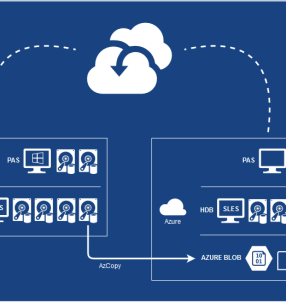![]()
Robert Taylor, tech innovator.
Gardner Campbell via Wikipedia CC
Robert Taylor, a computer scientist who was instrumental in the creation of the internet and modern computer, has died. He was 85.
Taylor, who had suffered from Parkinson’s disease, died Thursday at his home in Woodside, California, his son Kurt told The New York Times.
While many people played a role in building the internet, few made as many contributions as Taylor. As a researcher for the Pentagon’s Advanced Research Projects Agency in 1966, Taylor was frustrated that he had to use three separate terminals to communicate with researchers through incompatible computer systems.
His solution was Arpanet, a single computer network to link each project with the others that would evolve into what we now know as the internet. Taylor correctly predicted the network would one day become an efficient and necessary utility for the public.
“In a few years, men will be able to communicate more effectively through a machine than face to face,” he wrote in a 1968 paper.
In 1970, Taylor moved on to Xerox’s famous Palo Alto Research Center, where he oversaw design and creation of the Alto, considered a pioneer in personal computers. The Alto was the first computer designed to support an operating system based on a graphical user interface, a concept to be copied by the operating systems that would follow.
Taylor’s team also developed the networking technology Ethernet and a what-you-see-is-what-you-get word processing program called Bravo that would become the basis for Microsoft Word.
Taylor also played a key role in the creation of the computer mouse. While serving as a project manager for NASA in 1961, Taylor learned of research into interaction between humans and computers being conducted by computer scientist Douglas Engelbart at the Stanford Research Institute.
Taylor directed more funding to the research, leading to the creation of the computer mouse, which became a key element of both Macintosh and Microsoft Windows-based computers.
In the 1980s, Taylor formed and ran the Digital Equipment Systems Research Laboratory in Palo Alto, which, among other technologies, developed the AltaVista search engine in 1995 — two years before Google was founded.
Taylor was born in Dallas on Feb. 10, 1932. He began attending Southern Methodist University at the age of 16 but considered himself “not a serious student.” (PDF) After serving in the US Navy Reserve during the Korean War, Taylor returned to his studies, earning bachelor’s and master’s degrees in psychology at the University of Texas at Austin.
In 1999, Taylor was awarded the National Medal of Technology and Innovation “for visionary leadership in the development of modern computing technology, including computer networks, the personal computer and the graphical user interface.”
In 2004, he and other PARC researchers were awarded the National Academy of Engineering’s Draper Prize for development of “the first practical networked personal computers.”
Taylor retired in 1996.
Batteries Not Included: The CNET team shares experiences that remind us why tech stuff is cool.
CNET Magazine: Check out a sampling of the stories you’ll find in CNET’s newsstand edition.
[“Source-cnet”]
| M | T | W | T | F | S | S |
|---|---|---|---|---|---|---|
| 1 | 2 | 3 | 4 | 5 | 6 | 7 |
| 8 | 9 | 10 | 11 | 12 | 13 | 14 |
| 15 | 16 | 17 | 18 | 19 | 20 | 21 |
| 22 | 23 | 24 | 25 | 26 | 27 | 28 |
| 29 | 30 | |||||























